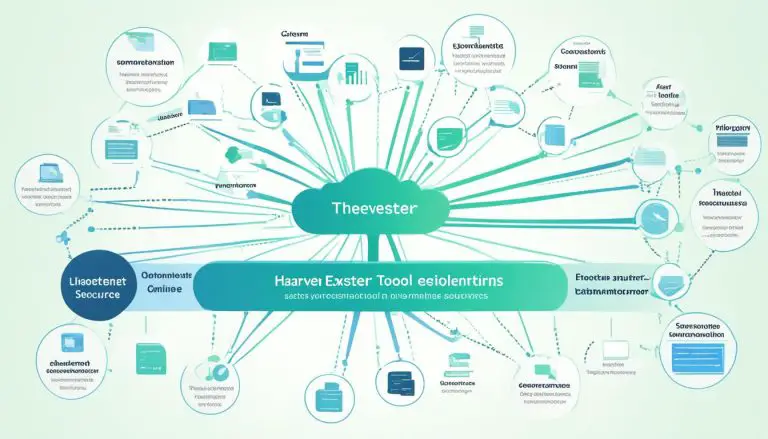What is Shodan: The Search Engine for Devices
Shodan is a revolutionary search engine that offers a unique perspective on the Internet by allowing users to explore and gather information about Internet-connected devices and systems. It goes beyond traditional search engines by specifically targeting the vast world of Internet of Things (IoT) devices, providing invaluable insights into their security and vulnerabilities.
Unlike popular search engines like Google, Shodan is designed to index and analyze the metadata and banner information of connected devices rather than focusing on web pages. This enables users to gain a comprehensive understanding of the devices, networks, and systems that are accessible through the Internet.
With its extensive database of billions of publicly available IP addresses, Shodan is a powerful tool for cybersecurity professionals, researchers, and IT experts. It provides a global perspective by crawling the entire Internet on a weekly basis, allowing users to discover devices, identify potential vulnerabilities, and assess the security of websites and networks.
Key Takeaways:
- Shodan is a search engine that focuses on Internet-connected devices and systems.
- It provides insights into the security and vulnerabilities of these devices.
- Shodan’s extensive database and regular crawling offer a global perspective.
- It is valuable for cybersecurity professionals, researchers, and IT experts.
- Shodan allows users to discover, assess, and protect Internet-connected devices.
The Capabilities of Shodan
Shodan is much more than just a search engine. It has a range of powerful capabilities that make it an invaluable tool for various purposes.
Real-Time Network Monitoring
One of Shodan’s key features is its ability to monitor your network in real-time. By utilizing Shodan, you can receive notifications whenever a new or unexpected device connects to your network within a specific range. This feature is particularly useful for security-conscious individuals and organizations looking to stay on top of any potential network breaches or unauthorized access.
Crawling and IP Lookup
Shodan’s crawling and IP lookup functionalities provide valuable insights into user connections and compromised websites. It allows you to gather information about IP addresses, ports, and even metadata associated with various devices. Shodan’s extensive database, which contains billions of publicly available IP addresses, provides cybersecurity professionals and researchers with a wealth of information for analysis and research purposes.
Network Security Analysis
Security experts widely use Shodan for network security analysis. Its comprehensive search capabilities allow users to identify potential vulnerabilities within network infrastructure. By utilizing Shodan’s search filters and Boolean operators, users can narrow down their search queries and obtain specific results related to their security analysis requirements.
Market Research and Vulnerability Analysis
Shodan’s capabilities extend beyond network security analysis, making it a valuable tool for market research and vulnerability analysis as well. Shodan enables researchers to explore internet-connected devices and systems, gaining insights into various industries and their technological landscape. Moreover, researchers can identify weak points and potential vulnerabilities within these devices and systems, aiding in the development of effective cybersecurity measures.
Penetration Testing
Penetration testers often rely on Shodan to simulate cyber attacks and evaluate the security of their systems. By leveraging Shodan’s extensive database, testers can identify potential entry points and vulnerabilities within target systems. This information allows them to assess the effectiveness of existing security measures and develop strategies to strengthen their defenses.
These are just a few of the many capabilities that Shodan offers. Its vast database, advanced search filters, and user-friendly interface make it an indispensable resource for cybersecurity professionals, researchers, and anyone seeking to gain insights into the world of internet-connected devices.
Shodan: Not Just for Hackers
While Shodan can be used by hackers, its primary audience is not malicious users. Shodan is widely utilized by cybersecurity experts, IT professionals, and researchers to protect individuals, enterprises, and public utilities from cyber attacks.
Shodan’s public nature and user-friendly interface make it an essential resource for ensuring online security and mitigating potential risks.
Shodan’s capabilities extend beyond hacking, offering valuable insights for cybersecurity and enterprise protection. It serves as a vital tool for:
- Cybersecurity: Shodan helps identify vulnerabilities in network infrastructure, ensuring they are promptly addressed and secured.
- Market Research: It enables businesses to gather information about internet-connected devices, allowing them to understand the competitive landscape and make informed decisions.
- Penetration Testing: Shodan aids researchers in conducting tests to identify potential weaknesses in systems and address them before attackers can exploit them.
By leveraging Shodan’s comprehensive database and search capabilities, cybersecurity professionals and businesses can proactively defend against threats and enhance their overall security posture.
The Wide Range of Shodan Users
Shodan attracts a diverse range of users due to its extensive functionalities and broad application in the cybersecurity field. The key users of Shodan include:
- Cybersecurity Experts: These professionals leverage Shodan’s powerful search capabilities to identify and mitigate vulnerabilities in network infrastructure.
- IT Professionals: Shodan’s insights and data enable IT teams to ensure the security of their devices, maintain regulatory compliance, and protect their networks from potential threats.
- Researchers and Academics: Shodan’s comprehensive database provides a valuable resource for researchers studying the internet of things (IoT), enabling them to gain insights into device security and potential vulnerabilities.
- Enterprises and Organizations: Shodan equips businesses and organizations with the ability to monitor and protect their networks, devices, and systems from cyber threats, ensuring the continuity of their operations.
Shodan’s broad user base highlights its significance in the cybersecurity landscape, reinforcing its reputation as a powerful tool for safeguarding online assets and critical infrastructure.
The Functioning of Shodan
Shodan operates by constantly crawling the internet and establishing connections to various IP addresses. Through these connections, it collects information and indexes it to build its database of internet-connected devices. Utilizing a global network of computers and servers, Shodan performs these crawling activities round the clock.
When connecting to devices, Shodan gathers metadata and banner information by targeting specific ports. This data encompasses device names, IP addresses, ports, location, organization details, and sometimes even default login credentials. This comprehensive collection of information forms the foundation of Shodan’s search engine, which users can access via both free and paid subscription options.
Shodan’s search engine utilizes Boolean operators and filters to optimize the search experience for users. By entering relevant search terms and applying specific filters, users can refine their searches and find precisely what they are looking for. The search capabilities offered by Shodan enhance efficiency and enable users to extract valuable insights from the vast database of internet-connected devices.
“Shodan’s crawling activities, coupled with its indexing and search capabilities, empower users with the ability to effectively explore and gather information about internet-connected devices worldwide.”
Shodan’s Continuous Crawling
Shodan’s continuous crawling is facilitated by its extensive network infrastructure. By deploying a network of computers and servers strategically placed around the globe, Shodan ensures uninterrupted scanning of the internet to identify and index connected devices.
Shodan’s crawling activities encompass requesting connections to various IP addresses, allowing it to collect the necessary data to build its comprehensive database. By systematically connecting to specific ports on devices, Shodan can gather a wide array of information about these internet-connected devices and systems.
Shodan’s Comprehensive Indexing
Once Shodan establishes connections to devices and collects the necessary data, it indexes this information to create its extensive database. The indexing process involves organizing the collected metadata and banner information to enable efficient searching and retrieval by users.
The indexed data includes crucial details such as device names, IP addresses, ports, location, organization information, and even default login credentials in some cases. Shodan’s indexing ensures that users can conveniently search for and access relevant information about internet-connected devices.
“By continuously crawling and meticulously indexing internet-connected devices, Shodan empowers users to gain insights into the vast ecosystem of connected technology.”
Shodan’s Connection Establishment
Shodan establishes connections to devices and collects data through targeted port scanning. By connecting to specific ports on devices, Shodan can retrieve metadata and banner information that provides valuable insights into the characteristics and vulnerabilities of these devices.
Through this connection establishment process, Shodan collects information such as device names, IP addresses, ports, geographical location, organization details, and even default login credentials. This robust data collection enables users to assess the security posture of internet-connected devices and potentially identify vulnerabilities that could be exploited by malicious actors.
Shodan’s connection establishment activities, combined with its continuous crawling and comprehensive indexing, provide users with a powerful tool for exploring and understanding the vast landscape of internet-connected devices.
Devices and Systems Found on Shodan
Shodan, as a powerful search engine for Internet-connected devices, has the remarkable ability to discover a wide range of devices and systems that are connected to the internet. This includes an extensive variety of devices such as baby monitors, internet routers, security cameras, maritime satellites, water treatment facilities, traffic light systems, prison payphones, and even nuclear power plants. These devices and systems form only a fraction of the vast array of devices that Shodan can uncover.
It is essential to note that while Shodan can identify these devices, it does not necessarily imply direct access or control over them. Shodan merely indexes publicly available information about these devices, providing a significant resource for security analysis and research.

However, it is crucial to keep in mind that many of the systems found on Shodan are protected by various security measures. These measures can include, but are not limited to, passwords, two-factor authentication, firewalls, and other security protocols. Thus, the presence of these devices on Shodan does not automatically indicate their vulnerability or lack of security.
How to Use Shodan Search Engine
Performing a search on Shodan requires more specific search filters compared to a basic Google search. Users can customize their queries by using filters such as city, country, hostname, product, operating system, port, and more. These filters allow users to search for devices in specific locations, based on software or product names, and within a particular timeframe.
Shodan’s search bar is designed with IT professionals in mind, and using search filters is the most efficient way to find relevant information quickly. By leveraging the advanced capabilities of Shodan search filters, users can narrow down their results to focus on specific device types, identify vulnerable systems, and gather valuable insights for cybersecurity analysis.
- City & Country: Filter search results by geographic location to identify devices within a particular city or country.
- Hostname & Product: Search for devices based on their hostname or product name to target specific brands or models.
- Operating System: Refine search results by the operating system running on the devices.
- Port: Specify a specific port number to identify devices running services on that particular port.
To make the most out of Shodan search, users can combine multiple filters using Boolean operators such as AND, OR, and NOT. This allows for even more precise and targeted searches.
Shodan provides 50 free search results, allowing users to explore and access initial information. However, for more extensive results, users can opt for paid subscriptions that offer additional features and access to a larger database of devices and systems.
Using advanced search filters in Shodan empowers IT professionals to effectively discover and analyze a wide range of internet-connected devices and systems. It provides valuable insights for cybersecurity analysis, network monitoring, and vulnerability assessment. By utilizing the full potential of Shodan search capabilities, users can enhance their understanding of the global device landscape and take proactive measures to protect their networks and mitigate potential risks.
The Origins of Shodan and its Impact
In 2003, computer programmer John Matherly created Shodan as a personal project. Originally intended to assist IT workers in analyzing and troubleshooting network vulnerabilities, Shodan quickly gained attention for its remarkable ability to discover vulnerable systems worldwide. This groundbreaking search engine was launched to the public in 2009, capturing the interest of both cybersecurity experts and malicious hackers.
Shodan’s impact was profound, unveiling the public accessibility and inadequate protection of numerous internet-connected devices. This revelation emphasized the urgent need for improved security measures and raised awareness about the crucial importance of cybersecurity. By showcasing the potential risks and vulnerabilities associated with connected technologies, Shodan highlighted the necessity for individuals and organizations to prioritize device and network security.
Through his creation, John Matherly inadvertently initiated a paradigm shift, pushing the boundaries of cybersecurity awareness and prompting industry-wide improvements. The legacy of Shodan continues to drive the evolution of online security, inspiring vigilance, and empowering individuals and enterprises to protect themselves in an increasingly interconnected world.
The Importance of Protecting Your Devices and Networks
As Shodan demonstrates, the internet can expose various devices and systems to potential risks. It is crucial to prioritize the security of your devices and networks to prevent unauthorized access and potential exploitation.
One important aspect of device security is limiting devices to local-only connections. By restricting access to your local network, you reduce the exposure of your devices to external threats.
To further enhance device security, it is recommended to change default login details. Many devices come with generic usernames and passwords, making them susceptible to unauthorized access. By changing these default credentials to unique, strong passwords, you significantly reduce the chances of a security breach.
Minimizing service banner information is another crucial step in protecting your devices. Service banners provide valuable information to potential attackers, including device type, operating system, and version numbers. By limiting the exposure of this information, you make it more difficult for attackers to identify vulnerabilities in your devices.
Network security is equally important in safeguarding your devices. Implementing network firewalls can help filter and block unauthorized access attempts, reducing the risk of intrusion.
Employing advanced antivirus software, like Norton, can provide an extra layer of protection by mapping out and securing every device on your network. These software solutions also offer warnings about suspicious connections and potential vulnerabilities, allowing you to take action before any harm is done.
By prioritizing device and network security and implementing these recommended measures, you can minimize the risk of unauthorized access to your devices and networks. Protecting your devices and networks from potential Shodan vulnerabilities is essential in today’s interconnected world.
Conclusion
In summary, Shodan is a powerful search engine that provides users with insights into internet-connected devices and systems. It serves various purposes, including cybersecurity analysis, market research, and vulnerability testing. By utilizing Shodan’s capabilities, individuals and organizations can gather valuable information about device security and identify potential vulnerabilities.
Shodan’s ability to uncover publicly available information about devices highlights the importance of prioritizing device and network security. It is crucial for users to take necessary precautions and implement robust security measures to protect themselves from potential threats.
In conclusion, Shodan offers a unique perspective on the interconnectedness of devices and the need for enhanced security measures. By understanding the risks and leveraging tools like Shodan, individuals and organizations can ensure a safer online environment and protect themselves from potential cyber attacks.
FAQ
What is Shodan?
Shodan is the world’s first search engine for Internet-connected devices. It allows users to discover and gather information about various devices and systems that are connected to the Internet.
What are the capabilities of Shodan?
Shodan is a powerful tool that enables users to monitor their network, identify vulnerabilities, conduct market research, and perform penetration testing. It provides real-time notifications, security analysis, and insights into compromised websites.
Is Shodan only used by hackers?
No, the primary audience of Shodan is not malicious users. It is widely utilized by cybersecurity experts, IT professionals, and researchers to protect individuals, enterprises, and public utilities from cyber attacks.
How does Shodan work?
Shodan works by continuously crawling the Internet, establishing connections to various IP addresses, and collecting metadata and banner information from devices. It uses Boolean operators and filters for efficient searching and provides both free and paid subscription options for users.
What types of devices and systems can be found on Shodan?
Shodan can discover a wide range of devices and systems connected to the internet, including baby monitors, security cameras, maritime satellites, water treatment facilities, traffic light systems, and even nuclear power plants.
How can I use the Shodan search engine effectively?
To perform a search on Shodan, users can customize their queries using filters such as city, country, hostname, product, operating system, and port. Using these filters helps to find relevant information quickly.
Who created Shodan and what impact has it had?
Shodan was created by computer programmer John Matherly. Since its launch, it has increased awareness of the importance of cybersecurity and the need for improved security measures. It has become a valuable resource for cybersecurity professionals and researchers.
How important is it to protect my devices and networks from Shodan?
It is crucial to prioritize the security of your devices and networks to prevent unauthorized access and potential exploitation. Implementing security measures, such as changing default login details and using network firewalls, can help protect against potential threats.
Source Links
- About the Author
- Latest Posts
Mark is a senior content editor at Text-Center.com and has more than 20 years of experience with linux and windows operating systems. He also writes for Biteno.com





